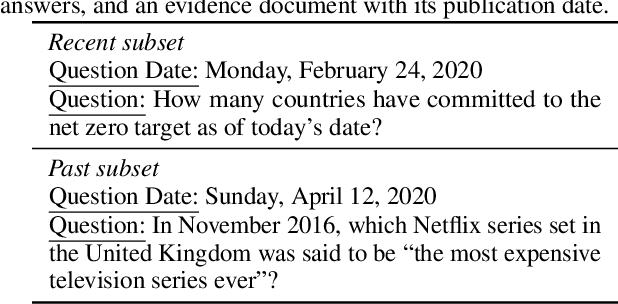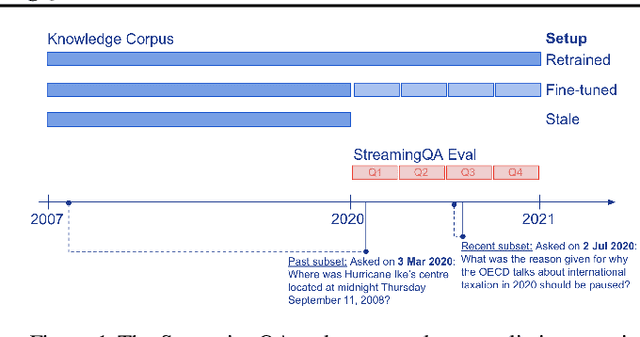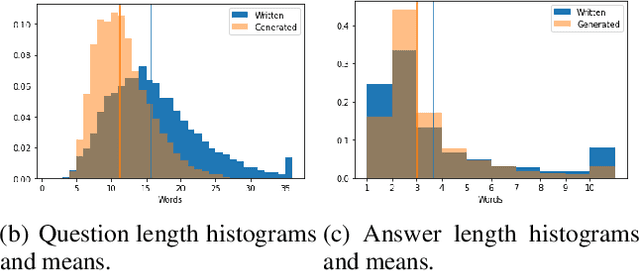Adam Liška
StreamingQA: A Benchmark for Adaptation to New Knowledge over Time in Question Answering Models
May 23, 2022



Abstract:Knowledge and language understanding of models evaluated through question answering (QA) has been usually studied on static snapshots of knowledge, like Wikipedia. However, our world is dynamic, evolves over time, and our models' knowledge becomes outdated. To study how semi-parametric QA models and their underlying parametric language models (LMs) adapt to evolving knowledge, we construct a new large-scale dataset, StreamingQA, with human written and generated questions asked on a given date, to be answered from 14 years of time-stamped news articles. We evaluate our models quarterly as they read new articles not seen in pre-training. We show that parametric models can be updated without full retraining, while avoiding catastrophic forgetting. For semi-parametric models, adding new articles into the search space allows for rapid adaptation, however, models with an outdated underlying LM under-perform those with a retrained LM. For questions about higher-frequency named entities, parametric updates are particularly beneficial. In our dynamic world, the StreamingQA dataset enables a more realistic evaluation of QA models, and our experiments highlight several promising directions for future research.
Memorize or generalize? Searching for a compositional RNN in a haystack
Jul 25, 2018



Abstract:Neural networks are very powerful learning systems, but they do not readily generalize from one task to the other. This is partly due to the fact that they do not learn in a compositional way, that is, by discovering skills that are shared by different tasks, and recombining them to solve new problems. In this paper, we explore the compositional generalization capabilities of recurrent neural networks (RNNs). We first propose the lookup table composition domain as a simple setup to test compositional behaviour and show that it is theoretically possible for a standard RNN to learn to behave compositionally in this domain when trained with standard gradient descent and provided with additional supervision. We then remove this additional supervision and perform a search over a large number of model initializations to investigate the proportion of RNNs that can still converge to a compositional solution. We discover that a small but non-negligible proportion of RNNs do reach partial compositional solutions even without special architectural constraints. This suggests that a combination of gradient descent and evolutionary strategies directly favouring the minority models that developed more compositional approaches might suffice to lead standard RNNs towards compositional solutions.
 Add to Chrome
Add to Chrome Add to Firefox
Add to Firefox Add to Edge
Add to Edge